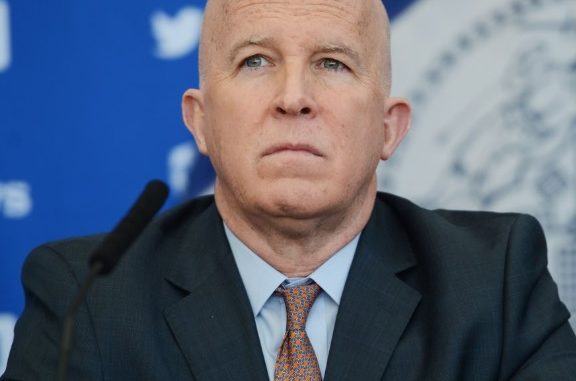
The public concern for police misconduct especially in the Stop and Frisk campaign has led to widespread distruct of the police department. Now that Commissoner O’Neill has begun looking into this matter with his Blue Ribbon Panel, we are all awaiting some evidence that the coverup of police misconduct will be exposed. Some posts by the NYCLU don’t give us alot of hope , though :
betsy@advocatz.com
ADVOCATZ.com
Editor, NYC Rubber Room Reporter
Editor, Parentadvocates.org
Editor, New York Court Corruption
Editor, National Public Voice
Editor, NYC Public Voice
Editor, Inside 3020-a Teacher Trials
Blue Ribbon panel begins review of NYPD disciplinary system that has proved resistant to change
As the blue-ribbon panel created by the city’s top cop to review how the NYPD punishes police for misconduct begins its work, history has shown that the disciplinary system is stubbornly resistant to change.
Way back in 1972, for example, the Knapp Commission — formed to probe a police bribery scandal — urged the NYPD to increase penalties for misconduct. The recommendation was not heeded.
In 1992, the Mollen Commission — created to investigate a scandal involving cops robbing drug dealers — made a similar proposal. That, too, was ignored.
Some years later, the City Commission to Combat Police Corruption proposed the same thing. That also went nowhere.
Civil rights advocates have long complained that the system needs to be more stringent and transparent, while cops also castigate the system, arguing it lacks fairness and is vulnerable to favoritism.
Meanwhile, the city continues to spend many millions each year to settle lawsuits filed against the NYPD. In 2017, the city paid out $308.4 million in claims against police officers — nearly triple the $104.9 million paid out in 2008. The settlement total has increased each year for the past decade.
In 2016, the NYPD, backed by the de Blasio administration, made the system even more opaque by cutting off public access to the outcomes of disciplinary cases, citing a state law that NYPD lawyers maintain makes police personnel records confidential.
That move spurred a series of lawsuits and generated a ton of negative press for the NYPD and City Hall.
In May, for example, the News profiled retired NYPD Capt. Warner Frey, who said as head of a unit that investigated detectives for misconduct, he witnessed top-ranking NYPD officials meddling in internal investigations.
The distinguished panel — comprised of former U.S. Attorneys Mary Jo White and Robert Capers and former federal Judge Barbara Jones — is tasked with navigating this difficult landscape.
Police Commissioner James O’Neill, who appointed the members in the wake of a Daily News series on flaws in the system, gave them a broad mandate to do a comprehensive examination of the system, his aides say.
And there’s no shortage of opinions on what should be done.
“The panel’s top three priorities have to be transparency, transparency, and transparency,” said Christopher Dunn, associate legal director of the New York Civil Liberties Union.
“To have an effective police disciplinary system, the public has to know how it works and when it fails. The mess the NYPD finds itself in now is almost entirely the result of its plunge into secrecy.”
The lack of transparency was on display Wednesday, when ex-tennis star James Blake, who was tackled by Police Officer James Frascatore, complained the NYPD hadn’t even notified him about the cop’s second trial, Tuesday, on departmental charges.
“This measure is a no-brainer,” said civil rights lawyer Joel Berger, noting that cops, in most cases, lose a few vacation days — even in cases involving serious violations.
“At the very minimum, having such a law on the books would have a deterrent effect on police misconduct,” added Berger, who called the decades-long failure to enact tougher penalties for police misconduct “scandalous.”
Moreover, the Civilian Complaint Review Board rarely substantiates complaints against cops. Consequently, he contends, people sue the city because they feel it’s their only option.
Joo-Hyun Kang of Communities United for Police Reform said the NYPD should have clear guidelines on the penalties for violations. “There is no other profession where there is not some set of guidelines,” she said. “There’s so much discretion in a way that ends up condoning abusive behavior with no meaningful consequences.”
She also wondered why there’s apparently no way for the public to interact with the panel. “It would be a real failure if they don’t consult with people who have been failed by the system,” she said.
Police spokesman Phillip Walzak said the panel is indeed accepting public input from members of the general public and will publicly release its findings and recommendations at the conclusion of its review.
“The NYPD does not determine the scope or focus of the panel’s work.” Walzak added. “Rather, the members of the independent panel make those determinations.”
Meanwhile, the police unions have their own strong views on the path to reform.
Detectives union president Michael Palladino says the rules and structure of the disciplinary system should be subject to negotiation between the NYPD and the five police unions.
“When one side has complete control over a process, it is subject to manipulation and abuse — which is why there are inconsistencies,” Palladino said. “That is simply human nature.”
Edward Mullins, the head of the sergeants union, said the fact that the police commissioner makes the final decision on discipline should be re-examined.
“I have mixed feelings about a system where there’s a sole person with final say,” he said. “We have no say in discipline. When something is unjust, we have to go to the media. It’s bizarre.”
Mullins noted that while the rank-and-file accused of misconduct face months, even years, on desk duty before being penalized, chiefs in the same situation often get to retire with their pensions intact without facing charges.
Captains union president Roy Richter said the disciplinary process should move much faster. In one case, he noted, a captain waited five years for his case to be resolved.
“The length of these cases is a penalty in and of itself because a person’s career is placed on hold,” he said.
Richter also pointed to the makeup of the CCRB, noting that the 10 board members appointed by the mayor and City Council are barred from having police experience. The other three are appointed by the police commissioner.
“That gives an inherent feeling of unfairness,” he said. “I would like the panel to look at that.”
The panel members all declined to comment.

Be the first to comment